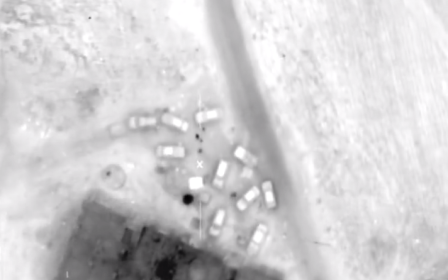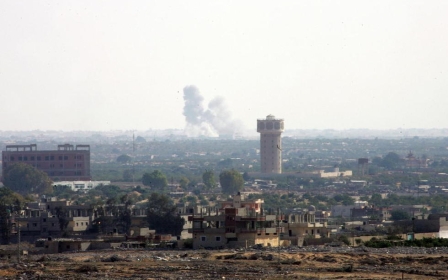Egypt ministry tell foreign journalists to stop using the term 'Islamic State'

Egypt’s foreign ministry on Saturday issued a guide instructing foreign journalists on how they should refer to groups including the Islamic State (IS), according to reporters based in the country.
Journalists shared on Twitter the new style guide, which said IS should not be referred to in religious terms, despite the group self-identifying as acting in the name of Islam.
“Terminologies that are religiously based or faith oriented carry in its fold negative connotations which are largely based on heinous stereotypes and ill-informed predispositions,” the ministry statement said.
“These terminologies tarnish the image of Islam as it falsely attaches the horrendous acts of these extremist groups to the Islamic faith.”
Islamic State, ISIS, and ISIL are terms the ministry said must be used, as well as jihadists and Islamists.
The ministry issued a host of approved terms for IS that included terrorists, savages, slayers, and eradicators.
The issue of naming IS has been consistently raised in the international media.
Most recently, British Prime Minister David Cameron pleaded with the BBC to call the group Daesh, an Arabic acronym for the group, instead of referring to it as the Islamic State.
Cameron said the Muslims likely “recoil” when they hear the group being labelled Islamic.
The BBC rejected the prime minister’s proposal on the basis that it would impact on their impartiality, claiming that the term Daesh is used derogatively by the group’s opponents.
Middle East Eye propose une couverture et une analyse indépendantes et incomparables du Moyen-Orient, de l’Afrique du Nord et d’autres régions du monde. Pour en savoir plus sur la reprise de ce contenu et les frais qui s’appliquent, veuillez remplir ce formulaire [en anglais]. Pour en savoir plus sur MEE, cliquez ici [en anglais].




